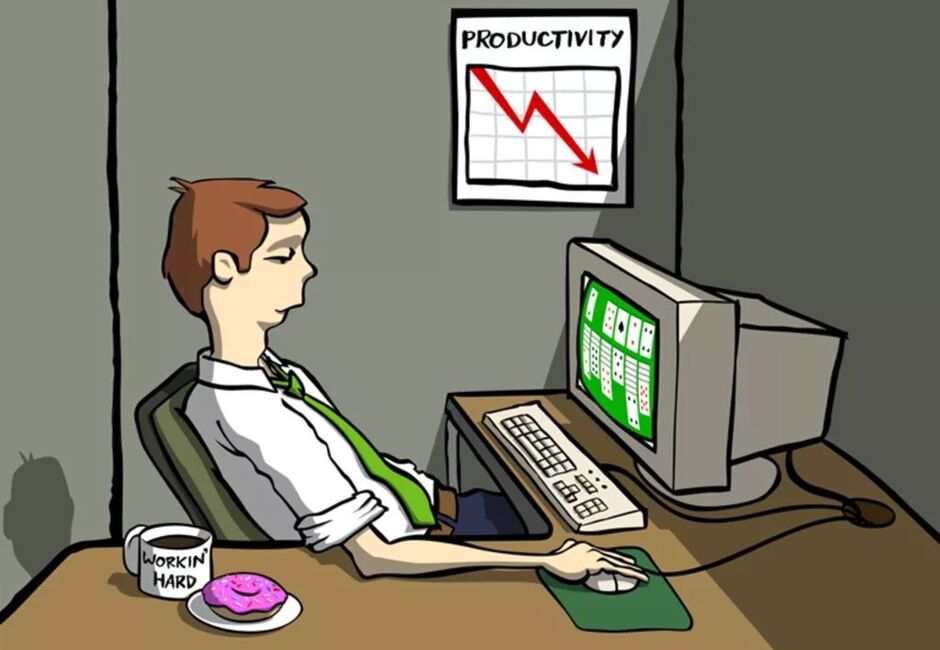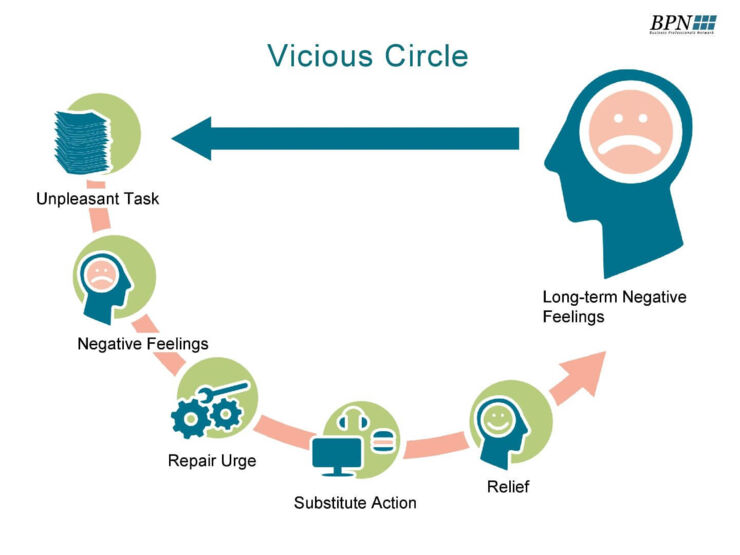
© Mike Elliott / shutterstock.com

You are always busy: Answering 30 emails a day, writing dozens of text messages, and taking phone calls. In the time remaining, you click through the internet, play computer games, search for the latest sports results, before thoroughly reading up on the latest gossip about Georgian wannabe celebrities.
Whatever you do, you do it very thoroughly. The really important things, however, you put off endlessly.
Pathological postponing, which psychologists also call procrastination, is widespread. It becomes a problem when eternal procrastination leads to impairments in one's job, studies and everyday life and those affected lose customers, get fired from their job or get fined because deadlines are not met.
People who put off their tasks pathologically move in a permanent vicious circle:

1. At the beginning there is always an unpleasant task, such as a full report that has to be submitted by a given deadline.
2. Instead of dealing with the unpleasant task immediately, it is postponed. This leads to negative feelings and frustration.
3. The affected person tries to overcome this frustration. This leads to a so-called repair urge.
4. Instead of doing the task at hand, the person devotes himself to a substitute action, which is usually less important and sometimes nonsensical.
5. This leads to short-term relief and a good feeling.
6. However, this brief positive feeling is then very quickly followed by a feeling of failure because the task was not completed and the external pressure becomes greater and greater. In the long-term, negative feelings arise and motivation and self-confidence decrease. As a result, other important tasks are not tackled. The result is a perfect vicious circle!
People who compulsively procrastinate are neither stupid nor lazy. Often they are even perfectionists. Their big problem is that they do not manage to start a task. This can have many causes:
- They feel a reluctance towards the tasks they should do. They don't see the point and have other goals.
- They are unable to say no and commit themselves to tasks they do not really want to do.
- They set themselves unrealistic goals. The immense amount of tasks involved prevents them from tackling them.
- They always try to do everything 100% perfectly. Their perfectionism overwhelms them, so they put off the tasks.
- Their work environment is teeming with tempting distractions and disruptive factors (telephone, internet, television, ...).
- They work on large projects and the deadlines associated with their work are all very long-term planned and thus, at first glance, not urgent.
Possible solutions are just as varied as the causes:

- Identify causes of dislike for a task: Is the task too monotonous, too difficult?
- Say no to tasks you don't want to do.
- Set realistic, SMART goals. Divide large tasks into subtasks. Accomplish these subtasks step by step.
- Apply the Pareto principle, 80/20 rule.
- Eliminate distractions (TV, mobile phone). If this is not possible: change the place of work.
- Set shorter deadlines.
Would you like to learn more on the topic of procrastination? Then sign up for our webinar on "Time- and Self-Management":
https://bpngeorgia.ge/business-academy/seminars-workshops/time-and-selfmanagement
or contact us via: info@bpngeorgia.ge





